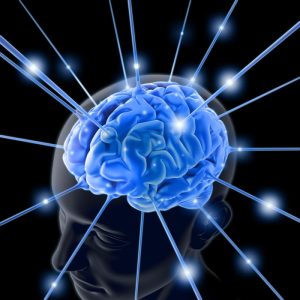 Mild cognitive impairment (MCI) is fast becoming one of the most common clinical conditions affecting the elderly with dementia being the single greatest cause of disability in Australians aged 65 years or older. Memory loss, dementia and the most extreme form of cognitive failure, the dementia of Alzheimer’s disease (AD), pose a huge public health burden for the Western world with significant medical and social costs and no current effective mainstream treatment.
Mild cognitive impairment (MCI) is fast becoming one of the most common clinical conditions affecting the elderly with dementia being the single greatest cause of disability in Australians aged 65 years or older. Memory loss, dementia and the most extreme form of cognitive failure, the dementia of Alzheimer’s disease (AD), pose a huge public health burden for the Western world with significant medical and social costs and no current effective mainstream treatment.
Currently the mono-pharmacotherapeutic approach has not been able to successfully treat or significantly delay this detrimental condition. Emerging research is showing that cognitive decline is not solely a condition of the mind, but is a neurological response to systemic factors. Dr Dale Bredesen from the University of California, Los Angeles, found that assessing and treating dementia from a functional medicine perspective produced the first documented cases of reversal. To provide real, long term improvements, it is critical to support the entire physiology, not just isolated neuro-physiological targets.
This approach is reflective of the methods incorporated in naturopathic medicine.
The Amyloid theory
Beta-amyloid (Aβ) has long been held accountable for triggering the neuronal degeneration in AD, however, recent research is demonstrating that Aβ may play a modulatory role in neuronal health. Advances in our understanding of AD pathophysiology are showing that there are a multitude of factors that trigger the process. It is like all other chronic diseases – whereby a single molecule is not to blame, rather it is imbalances between the body’s own physiological regulatory processes that drive cellular dysfunction and cognitive disease. Specifically, in AD there is an imbalance between neuronal growth –v- degeneration.
Many systemic metabolic influences have been shown to disrupt this balance triggering a neuronal downsizing. However, after continual insult, chronic brain changes occur and produce the signs and symptoms of dementia. To create long term cognitive improvements, neuronal regenerative balance must be re-established. Evidence demonstrates that this can be achieved via herbal and nutritional support, addressing systemic triggers and generally supporting a healthy metabolism.
The subtypes of Alzheimer’s Disease
Numerous systemic factors have been linked to AD. While a person may have several physiological factors that will influence AD, typically their systemic driver can be categorised into one of three major types. All types of AD will produce similar end-symptoms, but determining the subtype will indicate the critical targets for therapeutic intervention.
- Inflammatory: indicators include poor oral hygiene, history/current chronic inflammatory conditions, chronic stress, insomnia. A sub-category presents with metabolic syndrome, overweight/obese, increased waist circumference, Type 2 Diabetes.
- Atrophic: indicators include a history of hormonal imbalances, anti-testosterone treatment, hysterectomy, hypothyroidism, symptoms coincided with andropause/menopause.
- Toxic: early indicators are loss of train of thought; problems with calculation; amalgam fillings, exposure to heavy metals; chronic asthma/sinusitis; chemical sensitivity; fatigue; living/working in mouldy environments; Lyme disease; symptoms of zinc deficiency.
Restoring neurotrophic balance
As with most health conditions, there are a number of different triggers or contributing factors. As can be seen above, it may be necessary to correct several aspects of a person’s metabolism in order to achieve lasting restoration of neuronal balance.
The basics:
Diet – increase plant based foods, eliminating simple carbohydrates and processed foods. Increase wild caught fish intake and keep red meats to small portions. Eliminate artificial additives and sugar. Ensure adequate hydration (drink purified water). Aim to fast for a minimum of 12 hours between dinner and breakfast and for a minimum of three hours between dinner and bedtime.
Exercise – increase activity, gradually getting to a combination of aerobic and strength training five times a week for approximately 45 minutes. Begin gradually with walking and light weighted exercise.
Sleep – ensure regular, good sleeping habits. Aim for at least seven hours a night, removing all electronic devices from the bedroom.
Stress – reduce stress with relaxation exercises such as breathing techniques, meditation, yoga or tai chi to help reduce the stress response. Targeted herbal and nutritional formulas can also be beneficial when prescribed by a qualified naturopath.
Lifestyle – promote fun, joyful and mentally stimulating activities. Avoid exposure to toxins, whether these be occupational (hairdressing, carpenters, farmers, metal workers) or environmental (herbicides/pesticides, motor vehicle fumes, electricity and electromagnetic devices) or microbial (bacterial, viral, parasitic or fungal).
Holistic intervention and complimentary treatments have been shown to help restore neuronal balance and enhance cognitive function. Ideally, earlier intervention is better, however, with strict adherence it is possible that people can turn off the trigger of neuronal downsizing and switch back to neurogenesis.
To arrange an appointment call True Medicine today on 07 5530 1863.
